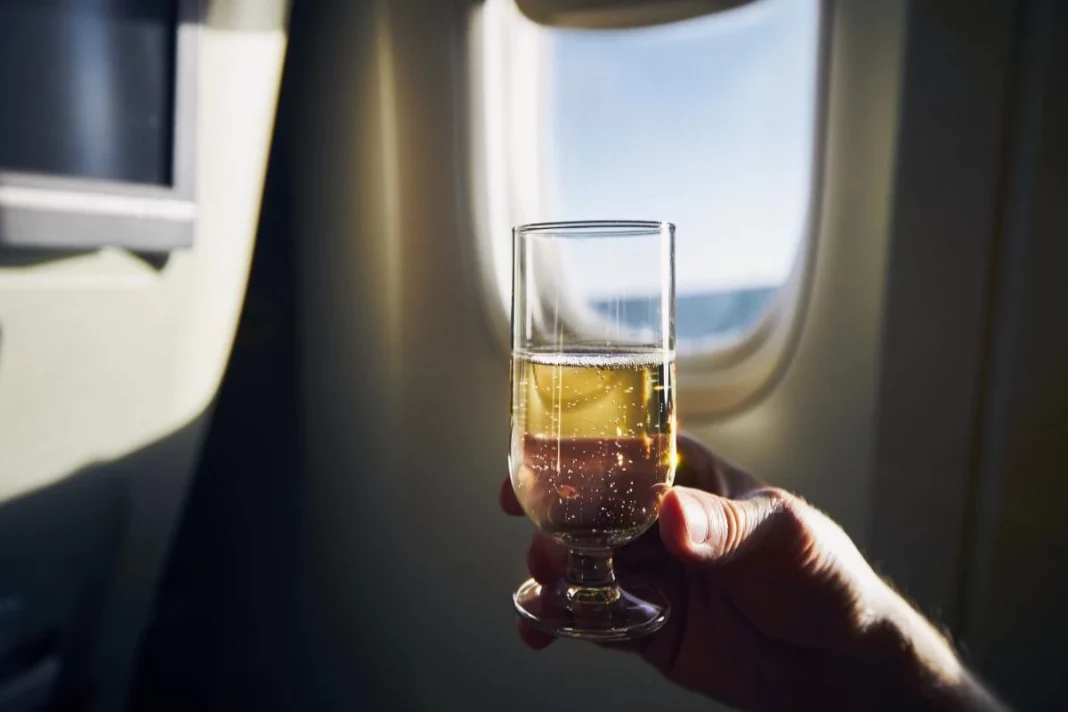Since being acquired by the Tata Group, Air India has been trying overtime to improve its image, and there have been some noticeable changes to the way it operates. However, recent instances of unruly passenger behaviour have put the airlines in a back foot.
Air India modifies In-flight alcohol service policy
The recent Pee Gate episode has given Air India unfavourable publicity optics, and its management is currently implementing changes that would help it reclaim its lost glory. It has updated its in-flight service policy, instructing the cabin crew to politely decline more alcohol servings as needed.
Revised Alcohol Policy of Air India
- Guests would not be permitted to drink alcohol unless served by cabin crew
- Cabin Crew needs to be attentive in identifying guests that might be consuming their own alcohol
As per policy,
“Service of alcoholic beverages must be carried out in a reasonable and safe manner. This includes tactfully refusing to (further) serve a guest alcohol,”
Also Read: 400 new Vande Bharat trains to be introduced in Budget 2023
Set of ‘do’s’ and don’ts of service refusal
These call on the cabin crew to be courteous, avoid making value judgements, and exhibit delicacy while politely informing the passenger that no more alcohol would be served to them.
According to the policy, “don’t call the guest a ‘drunk’ – warn them politely that their behaviour is unacceptable” and don’t be persuaded to give them ‘one last drink’ after it is stated that they have had enough.
Airline states in its policy,
“Don’t raise your voice. If they raise theirs, lower yours… don’t put off refusal, act while the guest can still be reasoned with,”
Additionally, it has informed the cabin crew that just because the issue has been verbally addressed does not mean it has been resolved.
“Managing unduly intoxicated patrons must be done assertively and respectfully,”
Although providing alcoholic drinks to guests is a long-standing practise, the airline asserted that there is a difference between enjoying alcohol and becoming intoxicated as a result of ingesting it.
The Policy states,
“Air India empowers its cabin crew to deny boarding / refuse service of liquor or remove any unconsumed alcohol where a guest is consuming their own and where there are reasonable grounds to believe that guests faculties are impaired by alcohol to an extent that will present a hazard to the aircraft, to persons on board (crew or guests) or to the guest themselves,”
Alcoholic beverages must be served in a responsible and secure way.
According to the airline, this includes politely declining to (further) serve a visitor alcohol.
The cabin crew must be alert to spot passengers who may be consuming their own alcohol and visitors should not be allowed to drink alcohol until it is supplied to them by the crew, it was stated.
Recommendations from US National Restaurants Association Guidelines
An Air India representative said in a statement that the airline had evaluated its current in-flight alcohol serving policy, taking into account best practises from other airlines as well as recommendations from the National Restaurant Association of the United States.
Air India Spokesperson states,
“These were largely in line with Air India’s existing practice, though some adjustments have been made for better clarity, and NRA’s Traffic Light system included to help crew recognise and manage possible cases of intoxication.”
“The new policy has now been promulgated to crew and included in training curricula. Air India remains committed to the safety and well-being of our passengers and cabin crew, including but not limited to the responsible service of alcohol,”
National Restaurant Association – Observation on guest behavior (green, yellow or red)
According to Air India, intoxication must be recognised and managed using the NRA’s Traffic Light system. This technique allows for the classification of visitor behaviour observations as green, yellow, or red.
“Cabin crew are responsible for monitoring guests for signs of undue intoxication and should observe the patron’s speech, coordination, balance and behaviour.”
The report states “Observations of the visitor’s behaviour can then be categorised as green, yellow, or red.”
Emphasis on distinguishing guests behavior
The carrier has emphasised the significance of differentiating between behaviour that might simply be a person’s personality attribute, such talking or laughing louder, and behaviour that might be caused by cultural background rather than unruly behaviour. The best way to deal with a worried, angry, or nasty customer is to utilise conflict management skills to diffuse the issue and prevent it from getting worse.
The airline has stated that it should be examined to see if any passengers exhibit warning signs like threatening behaviour, slurred speech, or shaky walking at the time of boarding. Such symptoms must be reported to the pilot in command or cabin supervisor in case they occur.
Also Read: Modi’s cabinet likely to expand before, 2023 budget major reshuffles predicted. Sources
Keep watching our YouTube Channel ‘DNP INDIA’. Also, please subscribe and follow us on FACEBOOK, INSTAGRAM, and TWITTER


